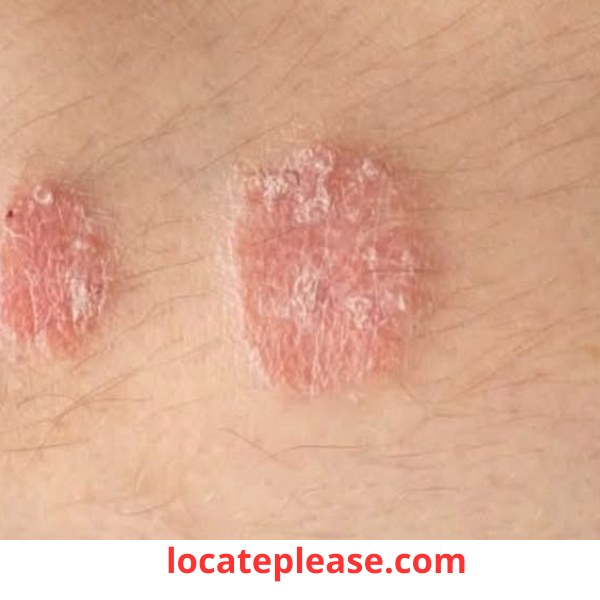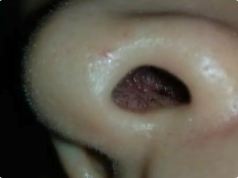Psoriasis is a chronic autoimmune skin condition that affects millions of people worldwide. While not life-threatening, it can significantly impact a person’s quality of life, causing physical discomfort, emotional distress, and social challenges. Recognizing the early signs of psoriasis is crucial for timely diagnosis and effective management. If you notice any of the following symptoms on your body, it’s important to consult a doctor immediately. Early intervention can help minimize the severity of flare-ups and improve overall well-being.
What Is Psoriasis?
Psoriasis occurs when the immune system mistakenly accelerates the growth cycle of skin cells. Normally, skin cells take about a month to mature and shed. In people with psoriasis, this process happens in just a few days, leading to a buildup of thick, scaly patches on the skin. These patches, known as plaques, are often red, inflamed, and covered with silvery-white scales.
Psoriasis can appear anywhere on the body, but common areas include the scalp, elbows, knees, lower back, and nails. It is a chronic condition, meaning there is no cure, but treatments can help manage symptoms and reduce flare-ups.
Signs You Shouldn’t Ignore
Psoriasis manifests differently in each individual, but certain hallmark signs indicate the need for medical attention. Here are some key symptoms to watch for:
- Red, Raised Patches of Skin
One of the most recognizable signs of psoriasis is the appearance of red, inflamed patches on the skin. These patches may feel warm to the touch and can vary in size and shape. They often have a distinct border and are usually covered with silvery-white scales. - Itching, Burning, or Stinging Sensation
Psoriasis can cause intense itching, burning, or stinging sensations in affected areas. This discomfort can disrupt daily activities and sleep, making it essential to seek medical advice for relief. - Dry, Cracked Skin That Bleeds
The skin affected by psoriasis tends to be extremely dry and prone to cracking. In severe cases, these cracks can bleed, increasing the risk of infection. If you notice persistent bleeding or open sores, it’s important to see a doctor promptly. - Thickened, Pitted, or Ridged Nails
Nail changes are common in psoriasis and can include pitting (small dents), ridges, discoloration, or separation of the nail from the nail bed. These symptoms can sometimes resemble a fungal infection, so professional evaluation is necessary. - Joint Pain or Swelling
About 30% of people with psoriasis develop psoriatic arthritis, an inflammatory condition that causes joint pain, stiffness, and swelling. If you experience these symptoms alongside skin issues, it could indicate psoriatic arthritis, which requires specialized treatment. - Scalp Flakes and Redness
Psoriasis on the scalp can mimic dandruff, but it typically involves thicker scales and more pronounced redness. Unlike regular dandruff, psoriasis flakes are often accompanied by itching and irritation. - Sudden Onset or Worsening Symptoms
Psoriasis symptoms can come and go in cycles, but a sudden flare-up or worsening of existing symptoms should prompt a visit to the doctor. Stress, infections, medications, or environmental factors can trigger these flare-ups.
Why Early Diagnosis Matters
Early diagnosis and treatment can make a significant difference in managing psoriasis. Without proper care, the condition can lead to complications such as:
- Increased risk of infections due to cracked skin
- Emotional distress, anxiety, or depression caused by visible symptoms
- Development of comorbid conditions like psoriatic arthritis, cardiovascular disease, or diabetes
A healthcare provider can assess your symptoms, rule out other skin conditions (such as eczema or fungal infections), and create a personalized treatment plan. Treatments may include topical creams, oral medications, phototherapy, or biologic drugs, depending on the severity of the condition.
How to Manage Psoriasis at Home
While medical treatment is essential, there are steps you can take at home to support your skin health and reduce flare-ups:
- Moisturize Regularly: Use fragrance-free moisturizers to keep your skin hydrated and prevent cracking.
- Avoid Triggers: Identify and avoid triggers such as stress, alcohol, smoking, and certain foods that worsen your symptoms.
- Take Warm Baths: Soak in lukewarm water with colloidal oatmeal or Epsom salts to soothe irritated skin.
- Protect Your Skin: Wear soft, breathable fabrics and avoid scratching or picking at plaques.
When to Seek Immediate Medical Attention
In rare cases, psoriasis can escalate into a severe form called erythrodermic psoriasis, which requires emergency care. Symptoms include widespread redness, shedding of large sheets of skin, fever, chills, and rapid heartbeat. If you experience these symptoms, seek medical help immediately, as they can pose serious health risks.
Conclusion
Psoriasis is more than just a skin condition—it’s a complex autoimmune disorder that requires understanding, patience, and proactive management. By recognizing the signs early and consulting a doctor promptly, you can take control of your health and minimize the impact of psoriasis on your life. Remember, you’re not alone—millions of people live successfully with psoriasis, and with the right care, you can too.
If you suspect you might have psoriasis or are experiencing unexplained skin changes, don’t hesitate to reach out to a dermatologist or healthcare provider. Early action can pave the way for better outcomes and improved quality of life






